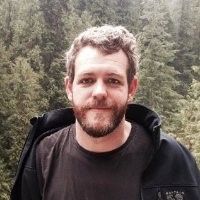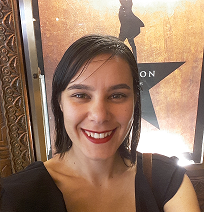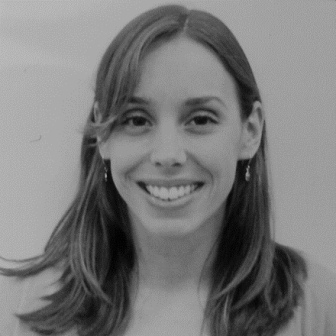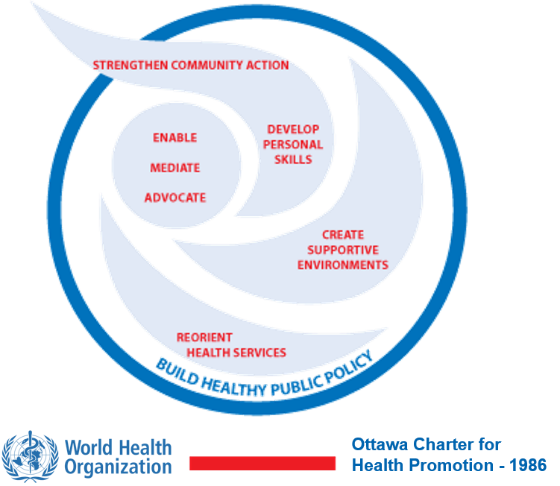- About DPH
- Our Services
- Our Programs
- Healthy Living
- Records, Permits & Licensing
- Knowledge Sharing & Collaboration
- Diseases & Conditions
- Training
Our Team
Devan Morris
is a Geographic Information System Analyst and Cartographer with the Program on Health, Equity, and Sustainability (PHES) at the San Francisco Department of Public Health (SFDPH). Devan performs geospatial and data analysis for several public health projects, including San Francisco’s Vision Zero policy. He is the lead developer on TransBASEsf.org, an innovative open source database management system designed to access, manage, and apply spatial data to inform solutions to transportation problems. TransBASESF.org currently includes over 200 spatially referenced variables from multiple agencies and across a range of geographic scales, including infrastructure, transportation, sociodemographic, and collision data, all linked to an intersection or street segment. This information has been used to create the city’s High Injury Network and for capital project prioritization as part of WalkFirst San Francisco.  He believes GIS an excellent tool to better understand the spatial distribution of phenomena, can be applied with a broad and diverse number of fields, and allows one to better understand how our world operates. He feels strongly that GIS data should also be made freely available to the public, allowing a broader audience to understand and have input on issues impacting our health and our society. Prior to SFDPH Mr. Morris worked on Environmental Impact Reports analyzing the impacts of the California High Speed Rail through the Central Valley and helped develop spatial datasets for the Port of Oakland’s web security portal. He teaches beginner and intermediate GIS classes through City College of San Francisco’s GIS Education Center and volunteers with BayGeo. He earned his Bachelor of Science from University of California, Davis and an Associate’s Degree from American River College.
He believes GIS an excellent tool to better understand the spatial distribution of phenomena, can be applied with a broad and diverse number of fields, and allows one to better understand how our world operates. He feels strongly that GIS data should also be made freely available to the public, allowing a broader audience to understand and have input on issues impacting our health and our society. Prior to SFDPH Mr. Morris worked on Environmental Impact Reports analyzing the impacts of the California High Speed Rail through the Central Valley and helped develop spatial datasets for the Port of Oakland’s web security portal. He teaches beginner and intermediate GIS classes through City College of San Francisco’s GIS Education Center and volunteers with BayGeo. He earned his Bachelor of Science from University of California, Davis and an Associate’s Degree from American River College.
Shamsi Soltani, MPH
is an Epidemiologist II in the Program on Health, Equity and Sustainability in the Environmental Health Branch at SFDPH. She works primarily with citywide Transportation-related Injury Surveillance System data in support of San Francisco's Vision Zero program.  Her varied public health experience includes rapid HIV testing and needle exchange in the Tenderloin, quality improvement, report development, and data wrangling within SFDPH's Behavioral Health Services. She also serves on Bridge HIV's Community Advisory Group, concerned with Bay Area HIV prevention research. Shamsi has performed evaluation and research on children's language development in rural Senegal, and coordinated a randomized clinical trial comparing uveitis drug treatments across three continents. The common denominator of her public health pursuits is a passion for investigating and addressing health disparities. Shamsi earned her MPH in Epidemiology from Tulane University School of Public Health & Tropical Medicine and a BS in Neuroscience from UCLA. Shamsi is a born and raised San Franciscan, and she most often commutes via bicycle.
Her varied public health experience includes rapid HIV testing and needle exchange in the Tenderloin, quality improvement, report development, and data wrangling within SFDPH's Behavioral Health Services. She also serves on Bridge HIV's Community Advisory Group, concerned with Bay Area HIV prevention research. Shamsi has performed evaluation and research on children's language development in rural Senegal, and coordinated a randomized clinical trial comparing uveitis drug treatments across three continents. The common denominator of her public health pursuits is a passion for investigating and addressing health disparities. Shamsi earned her MPH in Epidemiology from Tulane University School of Public Health & Tropical Medicine and a BS in Neuroscience from UCLA. Shamsi is a born and raised San Franciscan, and she most often commutes via bicycle.
Mimi Tam
is a Health Program Planner with the Program on Health, Equity and Sustainability team at the San Francisco Department  of Public Health (SFDPH) where she conducts research and evaluation to support City health and transportation initiatives including Vision Zero and the Central Market Tenderloin Strategy. She oversaw the youth Photovoice Project for Safer Taylor Street, led the evaluation for the city's pilot Motorcycle Safety Program, supported the creation of the Central Market Tenderloin Data Portal, and was instrumental to the analysis for the Mayor's Executive Directive on Achieving Vision Zero: Bicycle & Pedestrian Safety that identified target areas for traffic safety improvements for seniors and people with disabilities. Prior to SFDPH, Mimi built the Best Practices Library - a collection of best practices focused on addressing health and equity in regional transportation planning decisions - for TransForm, an Oakland-based transportation advocacy group, and worked on graphic design for Goldman Sachs. Mimi received her BA in Environmental Economics and Policy with a minor in City and Regional Planning from UC Berkeley.
of Public Health (SFDPH) where she conducts research and evaluation to support City health and transportation initiatives including Vision Zero and the Central Market Tenderloin Strategy. She oversaw the youth Photovoice Project for Safer Taylor Street, led the evaluation for the city's pilot Motorcycle Safety Program, supported the creation of the Central Market Tenderloin Data Portal, and was instrumental to the analysis for the Mayor's Executive Directive on Achieving Vision Zero: Bicycle & Pedestrian Safety that identified target areas for traffic safety improvements for seniors and people with disabilities. Prior to SFDPH, Mimi built the Best Practices Library - a collection of best practices focused on addressing health and equity in regional transportation planning decisions - for TransForm, an Oakland-based transportation advocacy group, and worked on graphic design for Goldman Sachs. Mimi received her BA in Environmental Economics and Policy with a minor in City and Regional Planning from UC Berkeley.
Meg Wall Shui, MPH
is a Senior Epidemiologist and Acting Director of the Program on Health, Equity, and Sustainability (PHES) at the San Francisco Department of Public Health (SFDPH).Meg splits her time between developing innovative metrics to measure the geographic distribution of environmental and social assets/barriers to good health and performance improvement analytics for the Environmental Health Branch.  Her current projects include managing the Central Market/Tenderloin Data Portal and leading place-based data analysis for SFDPH's Community Health Needs Assessment. Meg uses this community indicator work to collaborate with community groups and other City agencies, including the Planning Department, Office of Economic and Workforce Development, the Mayor's Office of Housing and Community Development, and the MTA. Of late, her work is increasingly focused on the Tenderloin neighborhood, by providing evaluation and decision-making guidance for the Central Market/Tenderloin Strategy, the Tenderloin Health Improvement Partnership, and the MTA's Safer Taylor Street project. Meg also sits on the advisory board for the California Environmental Health Tracking Program and the steering committee for SF Planning's "Advancing Equity in a Changing City" project. In addition to community indicators, Meg also supports SFDPH's Health Impact Assessment (HIA) practice and predictive modeling for Vision Zero. Prior to joining SFDPH, Meg worked at both the California Department of Public Health and the Centers for Disease Control and Prevention where she conducted research on youth physical activity habits and developed evaluation and surveillance plans for place-based nutrition and physical activity interventions. She earned her Master of Public Health from Emory University and her Bachelor of Science from UC Berkeley.
Her current projects include managing the Central Market/Tenderloin Data Portal and leading place-based data analysis for SFDPH's Community Health Needs Assessment. Meg uses this community indicator work to collaborate with community groups and other City agencies, including the Planning Department, Office of Economic and Workforce Development, the Mayor's Office of Housing and Community Development, and the MTA. Of late, her work is increasingly focused on the Tenderloin neighborhood, by providing evaluation and decision-making guidance for the Central Market/Tenderloin Strategy, the Tenderloin Health Improvement Partnership, and the MTA's Safer Taylor Street project. Meg also sits on the advisory board for the California Environmental Health Tracking Program and the steering committee for SF Planning's "Advancing Equity in a Changing City" project. In addition to community indicators, Meg also supports SFDPH's Health Impact Assessment (HIA) practice and predictive modeling for Vision Zero. Prior to joining SFDPH, Meg worked at both the California Department of Public Health and the Centers for Disease Control and Prevention where she conducted research on youth physical activity habits and developed evaluation and surveillance plans for place-based nutrition and physical activity interventions. She earned her Master of Public Health from Emory University and her Bachelor of Science from UC Berkeley.
Tiffany Yim, MPH
is a Health Program Coordinator for the Program on Health, Equity and Sustainability and the Food Safety Program in the Environmental Health Branch at SFDPH, where she is assisting with improving Environmental Health data systems and data sharing in support of regulatory programs and San Francisco’s open data initiatives as well as implementing nutrition legislation policies. 
PHES: Guiding Principles and Core Values
Healthful Environments: Healthy people reflect healthful environments. Following the 1986 WHO Charter on Health Promotion, we define the basic conditions and resources needed for health to be peace, shelter, education, food, income, stable ecosystems, sustainable resources, social justice, and equity.
 Equity: A fair distribution of economic, political, social and natural resources and opportunities improves individual livelihood and the overall health of society.
Equity: A fair distribution of economic, political, social and natural resources and opportunities improves individual livelihood and the overall health of society.
Sustainability: Conserving and improving economic, social and environmental systems so that present and future community members can lead healthy, productive and enjoyable lives.
Inter-connectedness: The natural and built environments, human activities, and human relationships are connected.
Public Access and Accountability: The process for making public choices must be open and involve the people most affected. Good public policy decisions ensures that all participants have access to relevant information, including an understanding of underlying conflicts and competing interests.
Meaningful Participation: Ensuring meaningful public participation in policy-making requires sincere actions to support people’s involvement, the valuing of local knowledge and experiences, and incorporating the perspectives and needs of communities into decision-making.

